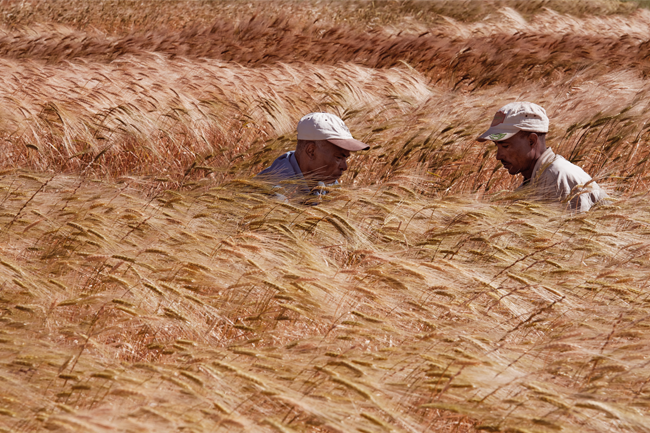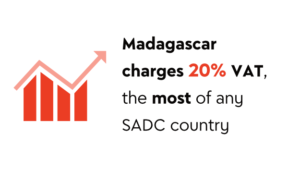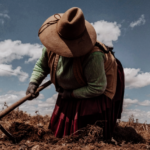There are no two ways about it. The multiplier effect of the agricultural value chain sets it apart from other sectors in that money invested in agriculture achieves in terms of economic growth and job creation more than any other industry.
Historically, agriculture has proved to have a two- to four-times greater multiplier effect in increasing incomes of extremely poor people, as investment in farming offers the opportunity to directly benefit the poor, especially those in rural areas.
According to the South African Department of Agriculture, Forestry and Fisheries (DAFF), every ZAR1 invested in the agriculture sector translates into GDP growth to the value of ZAR1.79 (i.e. a rate of 1.79%), compared to manufacturing (1.13%), construction (0.81%) and mining (0.60%). In other words, money spent on agriculture is nearly twice as effective in terms of GDP growth than money spent on construction, and three times more effective than mining.
What’s more, the employment multiplier per every ZAR1 million invested was 10.5 for agriculture, 3 for manufacturing, 2.5 for construction and 0.5 for mining.
That said, the business case for investing in agricultural development in Africa spans further than job creation and economic growth.
A recent PwC report highlights that rapid industrialisation and urbanisation across many emerging economies is placing considerable strain on global food resources and that, as a result, food security in Africa is set to become a major investment theme.
‘The world needs more food,’ PwC agricultural adviser Richard Ferguson explains.
‘China’s growing protein needs alone will require an area the size of the UK to grow the grains to support that consumption. And as more industrialising countries lose the ability to feed themselves, the world is going to look increasingly to Africa to be the solution.’
It is unlikely that developed markets will be able to rise to the challenge as there are no significant under-farmed areas left to develop in these markets. This, says PwC, presents a ‘once-in-a-lifetime’ opportunity for Africa.
‘With some 400 million ha of under-utilised land on the Guinea savannah, Africa represents an extraordinary resource that’s not only capable of supplying domestic needs for multiple African nations but also becoming a major source of world food supplies,’ it states.
Ferguson adds that in order to do so, African governments need to ‘drive food security and development goals in tandem’. Investment in agriculture development, however, need not be the sole domain of governments – there is also massive scope for private sector buy-in.
In Africa, private-sector investment in agriculture ranges from large-scale investment in land, primary production capacity and agroprocessing and logistics to much smaller, localised investments that are often aimed at the establishment of smallholder farmers and assisting them gain access to supply chains.
One example of targeted investment that has been successfully applied in South Africa and a few other sub-Saharan African countries is the retailer/supplier-development model.
Most supermarket chains in South Africa, some of which have expanded operations to other African nations, have invested in supplier-development programmes that focus specifically on smallholder farmers by providing input and production support, as well as off-take agreements for the produce they grow.
Woolworths’ enterprise development and supplier development (ED/SD) programme, for example, has been designed primarily to support black-owned enterprises in the greater supply chain, including primary and secondary suppliers.
According to Diane Peterson, Woolworths’ sustainability communications consultant, the programme removes barriers of entry into the retailer’s supply chain for small and medium, black- and black woman-owned enterprises.
She explains that Woolworths firmly believes that enterprise development has to make good business sense for both the retailer and the enterprise-development beneficiary.
‘Over the last four years, Woolworths has had an accumulated procurement spend of ZAR1.1 billion with enterprise development and supplier development beneficiaries, and disbursed ZAR50.6 million in loans as financial support for some of these enterprises,’ says Peterson, adding that the programme has created 808 sustainable jobs and benefited more than 3 230 people.
‘Once a potential supplier has been identified, we need to establish the viability of the project, so the ED/SD office compiles a business case,’ she says. ‘The business case tests if the supplier or farmer is a strategic fit, the viability of the enterprise and if the farmer/supplier can deliver in line with commercial key performance indicators.’
It also identifies gaps for support, from which the ED/SD office compiles a development plan for the farmer/supplier, defining the roles of Woolworths, primary supplier, outside mentor and any other parties involved.
In addition, it pinpoints specific challenges and then provides the backing to address them, be that in the form of financial support (loans or shorter payment terms) or non-financial support (such as business development).
‘In the last fiscal, Woolworths’ ED/SD contribution was ZAR84.2 million, of which 23% was in agriculture,’ according to Peterson
‘[The company] believes emerging farmers are crucial to the sustainability of our food production in South Africa, and that they offer us the opportunity to introduce innovative products like indigenous or organic eggs.
‘They also extend and diversify our local supplier footprint, helping us minimise trunking costs and reducing our carbon footprint.’
Woolworths’ ED/SD programme has seen numerous success stories, one of which is that of Ruben Mahlare, a farmer based near Bela-Bela, Limpopo. Through the programme’s support, he was able to grow his poultry business from a small-scale operation (that supplied just one large-scale producer and distributor) into a commercially-viable enterprise with direct access to the retail market.
Woolworths gave Mahlare a ZAR2.7 million loan to expand his indigenous, free-range egg-farming business, and he now has more than 10 000 indigenous hens that produce ‘grade 1’ eggs, in free-range chicken houses.
Similar initiatives have also been implemented by other major retailers such as Massmart and Pick n Pay, as well the Shoprite chain, through the group’s fruit and vegetable procurement and distribution arm, Freshmark.
When it comes to private-sector investment, it’s not just retailers that have become actively involved in enterprise development. Many agribusinesses, private investment companies and banks have also launched programmes aimed specifically at developing small-scale farmers and assisting them with market access.
An enterprise-development fund launched by private investment firm, WDB Investment Holdings (WDBIH), strives to address the funding and business-support gap typically experienced by SMEs, specifically focusing on female entrepreneurs.
It aims to increase access to unsecured debt financing and business development services – including training and facilitating access to markets – by working with strategic partners across various target sectors, such as agriculture and agroprocessing, as well as green and service industries.
According to WDBIH CEO Faith Khanyile, the firm identified a gap in the market for enterprise development-investment funding that is targeted at smaller businesses (in the ZAR50 000 to ZAR1 million market).
The majority of funds, she adds, focus on projects of ZAR1 million and more.
‘We realised that in order to make a success of the SMEs we support, we needed to really understand the needs and challenges of these enterprises, and we needed to understand how they managed to function without support,’ says Khanyile.
Their decision to support women farmers went hand-in-hand with a needs assessment of these female-owned microenterprises.
Selina Ndou (Ndivhaleni Farm), Rosinah Tshisevhe (Thembuluwo Farming) and Elelwani Mulaudzi (Elelwani Farming) are three of the Limpopo-based, female smallholder farmers supported by WDBIH.
They were each given production loans of between ZAR150 000 and ZAR300 000, in order to provide working capital to help them produce around 10 ha of vegetables, farmed on communal land.
In addition, WDBIH also ensured that they received mentorship support from TechnoServe, an international NPO that provides extension and advisory services to farmers across South Africa. With the help of both organisations, these farmers have also secured off-take agreements with agroprocessors and retailers.
‘My farm was not growing before I joined WDBIH,’ says Ndou. Since securing funding, however, she has been able to invest in irrigation infrastructure, which has enabled her to expand her business. Today Ndou produces maize, butternut, chilli, tomato and gem squash. What’s more, she provides permanent employment for eight people.
Meanwhile, through the loan provided by WDBIH, Tshisevhe has been able to increase her crop area from just 1 ha to more than 5 ha.
Mulaudzi elaborates on the struggles she and other female farmers typically face when trying to obtain loans to cover production costs, and explains how – even if and when they are granted – it’s often done so too late in the season for them to plant.
WDBIH’s approach (whereby the investment firm is personally involved with each of the farmers they support) has helped the firm identify challenges and issues, including the importance of timeliness when providing input assistance.
‘We want to work hard. WDBIH took us from nowhere and now we are at a better place,’ says Mulaudzi. ‘They rescued us at a time when we no longer knew what to do.’
















